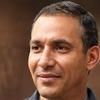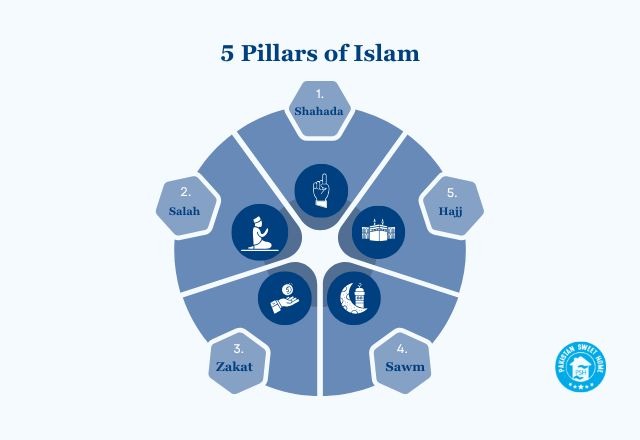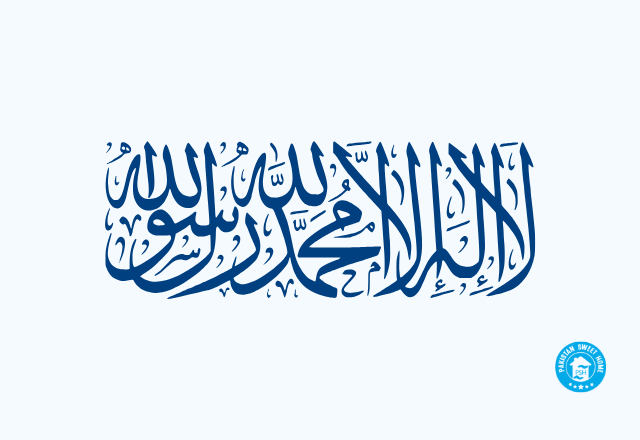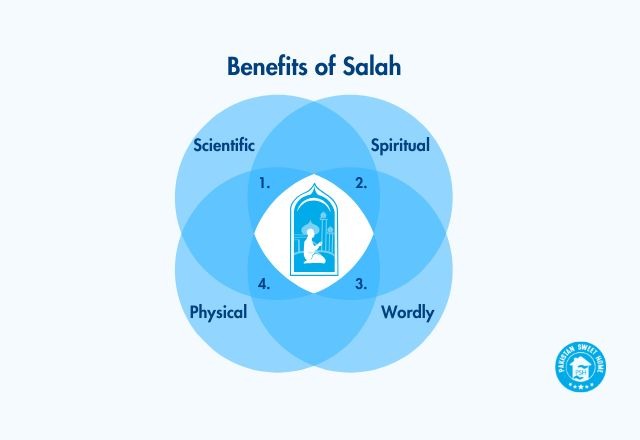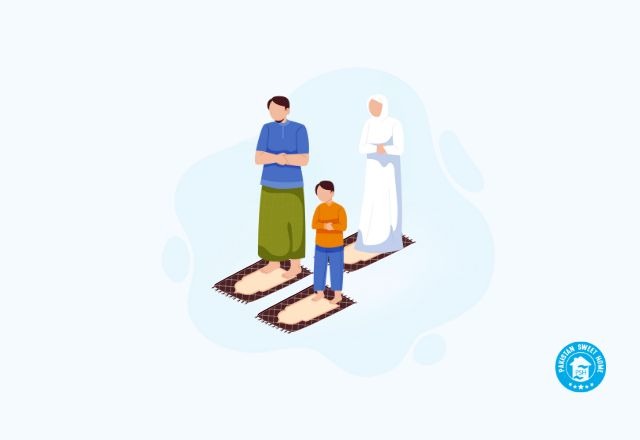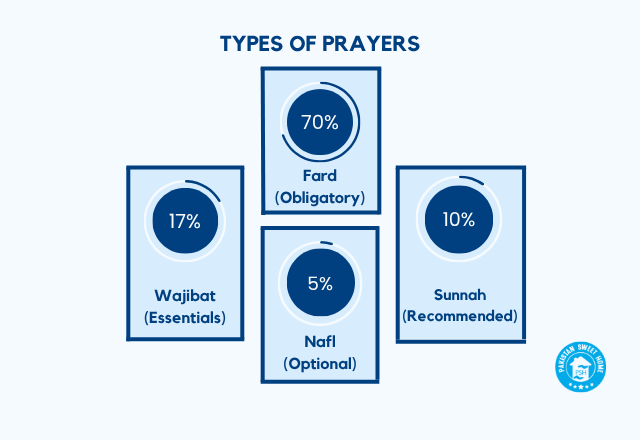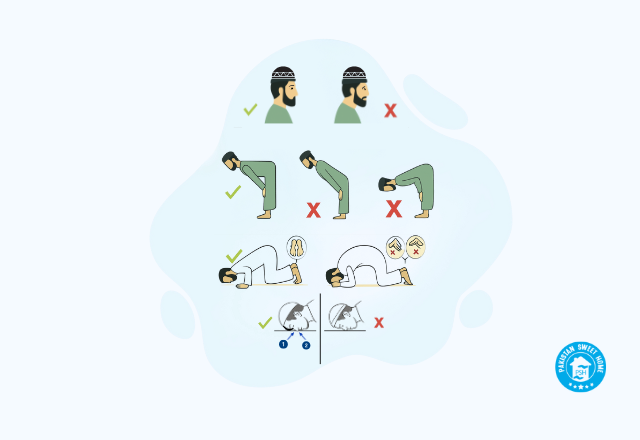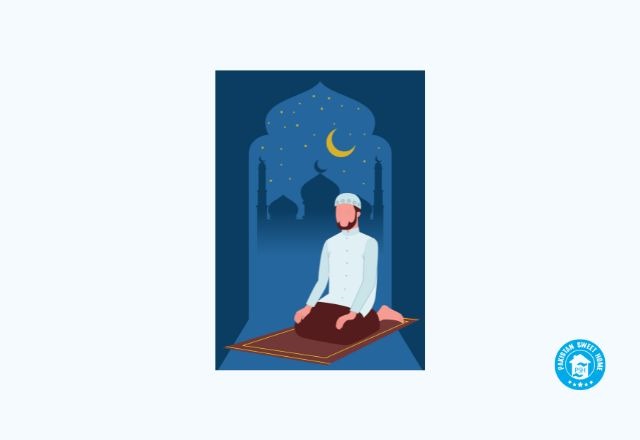The Five Pillars of Islam are the fundamental acts of worship and practice that define Muslim life.
They were emphasized in the Hadith of Gabriel, where the Prophet Muhammad (ﷺ), messenger of God, explained them as the foundation of Islam. Each pillar represents a unique form of devotion, yet together, they unify believers across cultures and communities.
While Islamic schools of thought may differ on minor aspects of practice, the Five Pillars remain universally accepted among Muslims worldwide. They are not just rituals but also commitments to God, self-discipline, and service to humanity.
Let the Five Pillars of Islam open the way to understanding how faith becomes a living practice in every aspect of life.
1. Shahada: The Declaration of Faith
The Shahada is the first and most fundamental pillar of Islam.
It is the testimony that declares:
لَا إِلٰهَ إِلَّا اللهُ، مُحَمَّدٌ رَسُولُ اللهِ
“La ilaha illa Allah, Muhammadur Rasul Allah”
Translation: There is no god but Allah, and Muhammad is the Messenger of Allah.
Significance of Shahada
- Affirmation of Monotheism: It declares the oneness of God, the essence of Islam.
- Prophethood of Muhammad (PBUH): It acknowledges Muhammad as the final messenger who delivered God’s guidance.
- Foundation of Faith: By sincerely pronouncing the Shahada, one formally embraces Islam.
Living the Shahada
Shahada is not a one-time statement but a lifelong commitment. Muslims reaffirm it through prayer, daily speech, and actions that reflect belief in God’s oneness. New converts to Islam formally declare the Shahada as their entry into the faith.
2. Salah: Daily Prayers
The second pillar is Salah (prayer), performed five times a day at prescribed times:
- Fajr (dawn)
- Dhuhr (noon)
- Asr (afternoon)
- Maghrib (sunset)
- Isha (night
Purpose of Salah
- Connection with God: Prayer establishes direct communication with Allah without intermediaries.
- Discipline and Consistency: By praying at fixed times, Muslims structure their day around spirituality.
- Unity: Across the world, Muslims face the Kaaba in Mecca, fostering a sense of global unity.
Components of Salah
- Wudu (Ablution): Ritual purification before prayer.
- Recitation of Qur’an: Especially Surah Al-Fatiha.
- Postures: Standing, bowing, and prostration symbolize humility before God.
Prayer is not just physical movements; it’s mindfulness, repentance, and gratitude. Even in busy schedules, Muslims pause for Salah, aligning their lives with their faith.
3. Zakat: Obligatory Charity
The third pillar is Zakat (almsgiving), an annual contribution given to those in need. Typically, Muslims donate 2.5% of their accumulated wealth once a year if their savings exceed the nisab of Zakat threshold.
Purpose of Zakat
- Purification of Wealth: It cleanses earnings and prevents greed.
- Social Justice: Supports the poor, orphans, and those in hardship.
- Community Balance: Reduces inequality and strengthens bonds among Muslims.
Who Receives Zakat?
According to the Qur’an, recipients of Zakat (Masarif-e-Zakat) are:
- The poor (al-fuqara): Those with no or very little means.
- The needy (al-masakin): Those with insufficient resources to meet basic needs.
- Zakat collectors (al-‘amilin ‘alayha): Those appointed to collect and distribute Zakat.
- Those whose hearts are to be reconciled (al-mu’allafatu qulubuhum: New Muslims or those inclined towards Islam.
- Those in debt (al-gharimin): Individuals overwhelmed with legitimate debts.
- For freeing captives/slaves (fi al-riqab): To help secure freedom.
- Travelers in difficulty (ibn al-sabil): Stranded or struggling wayfarers.
- In the path of Allah (fi sabilillah): Charitable causes and communal welfare that serve Islam and the community.
Modern Applications
Many Muslims give Zakat through mosques, charities, or online platforms, ensuring their contributions reach those most in need. Beyond Zakat, voluntary charity (sadaqah) is encouraged throughout the year.
4. Sawm: Fasting in Ramadan
The fourth pillar is Sawm (fasting), observed during the month of Ramadan. It is the ninth holy month of the Islamic calendar. Muslims abstain from food, drink, smoking, and marital relations from dawn until sunset each day.
Purpose of Sawm
- Spiritual Cleansing: Fasting nurtures patience, self-control, and empathy.
- Gratitude: Experiencing hunger reminds believers of God’s blessings.
- Solidarity: Unites Muslims globally in a shared act of worship.
Rules of Fasting
- Exemptions: Children, the sick, travelers, the elderly, and pregnant or nursing women may be exempt or required to make up missed fasts through Fidya.
- Breaking the Fast: Each day ends with Iftar, a meal traditionally started with dates and water.
- Special Prayers: Nightly Taraweeh prayers add to Ramadan’s spirituality.
Ramadan is also about avoiding negative behavior, lying, anger, or gossip, while increasing acts of worship, Qur’an recitation, and charity.
5. Hajj: The Pilgrimage to Mecca
The final pillar is Hajj, the pilgrimage to the holy city of Mecca in Saudi Arabia. It is obligatory once in a lifetime for Muslims who are physically and financially able.
Rituals of Hajj
Performed during the Islamic month of Dhul-Hijjah, the pilgrimage includes:
- Tawaf: Circling the Kaaba seven times.
- Sa’i: Walking between the hills of Safa and Marwa.
- Standing at Arafat: A day of prayer and reflection.
- Stoning of the Jamarat: Symbolizing the rejection of evil.
- Eid al-Adha Sacrifice: Commemorating Prophet Ibrahim’s devotion.
Spiritual Significance
- Unity: Millions of Muslims, regardless of nationality or status, gather in equality.
- Renewal: Hajj is often described as a rebirth, a cleansing of sins, and a renewal of faith.
- Global Brotherhood: It reinforces the sense of belonging to a universal Muslim community.
Why Are the Pillars of Islam Significant?
The Five Pillars are more than obligations; they are the spiritual framework of Islam. Together, they nurture:
- Faith: Shahada anchors belief in God.
- Discipline: Salah and fasting structure daily life.
- Compassion: Zakat builds empathy and justice.
- Unity: Hajj and prayer unite Muslims worldwide.
- Personal Growth: Each pillar fosters self-reflection, resilience, and gratitude.
They ensure that Islam is not limited to personal beliefs and practices but actively shapes society, community, and individual character.
Just like the fingers of a hand, when the Five Pillars are followed together, they form a closed palm, firm and strong. Living by them gives Muslims strength, stability, and the ability to face life with purpose and resilience.
Practical Guide: Living the Pillars of Islam in Today’s World
Modern life is fast-paced, yet the Five Pillars remain timeless. Here’s how Muslims integrate them today:
- Shahada: Keeping faith central in decisions and daily ethics.
- Salah: Using mobile apps and reminders to pray on time, even at work or school.
- Zakat: Giving through digital platforms and ensuring transparency in charitable work.
- Sawm: Balancing health and fasting, planning meals, and fostering community through Iftar gatherings.
- Hajj: Preparing financially and spiritually, using modern resources for guidance.
Living the pillars today involves adapting tools of modern life while preserving the sincerity of worship.
In conclusion, the Five Pillars of Islam are the essence of the Muslim faith and practice. They go beyond rituals, shaping character, society, and spirituality. From the Shahada’s declaration of belief to the global unity of Hajj, these pillars guide Muslims in their relationship with God and their responsibilities to humanity.
In a world of distractions and challenges, the Five Pillars remain timeless, reminding believers of their purpose: to live with faith, discipline, compassion, and unity.
Supporting an Orphan care foundation like Pakistan Sweet Home reflects these values in action. Supporting orphans and vulnerable children embodies compassion, charity, and service to humanity at the heart of Islam.
Restore Hope for Orphaned Souls
Ali Raza holds a Master of Arts in Islamic Studies and is an expert in Islamic theology and jurisprudence. Specializing in Zakat, Sadaqah, and other Islamic donations, Ali's writings provide valuable insights into the religious and ethical aspects of charity. His work for Pakistan Sweet Homes aims to educate and inspire readers to support orphan care and charitable initiatives, making him a key contributor to the organization's mission.
Ali Raza holds a Master of Arts in Islamic Studies and is an expert in Islamic theology and jurisprudence. Specializing in Zakat, Sadaqah, and other Islamic donations, Ali's writings provide valuable insights into the religious and ethical aspects of charity. His work for Pakistan Sweet Homes aims to educate and inspire readers to support orphan care and charitable initiatives, making him a key contributor to the organization's mission.

info@pakistansweethome.org.pk
(051) 4865856
+92 335 1118477


